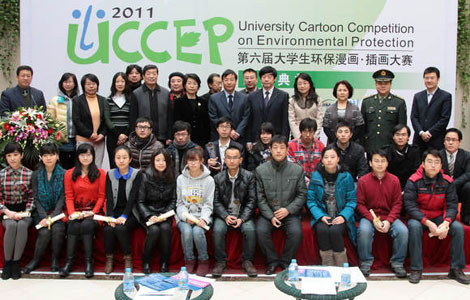PBOC to regulate RQFII programs
Updated: 2012-01-05 10:17
(Xinhua)
|
|||||||||||
BEIJING - China's central bank on Wednesday issued guidelines to regulate foreign investors' yuan-denominated investment activities in China in preparation for a possible backflow of yuan into the mainland's equity markets.
New guidelines on the implementation of the Renminbi Qualified Foreign Institutional Investors (RQFII) program by the People's Bank of China (PBOC), the country's central bank, came just several days after the PBOC approved a 10.7-billion-yuan ($1.7 billion) investment quota for the first RQFII pilot program.
According to the new guidelines, overseas institutions under RQFII pilot programs should open their RQFII basic deposit accounts for settlement purposes, as well as RQFII special deposit accounts, in a Chinese commercial bank that is qualified to act as a QFII custodian, as well as a settlement agent, in the interbank bond market.
Pilot overseas institutions must create a separate special deposit account for each open-ended fund they launch, according to the guidelines.
They should not open a general deposit account for cash payments or a temporary deposit account for permanent institutions otherwise approved by the PBOC.
Pilot institutions can open three kinds of special deposit accounts in their custodian and settlement agent banks for their transactions in the interbank bond market, bourse and the stock markets. Capital can be transferred between the three special deposit accounts, the regulations said.
However, these institutions are not allowed to make capital transfers between special deposit accounts and basic deposit accounts. Cash withdrawals are also prohibited from special deposit accounts.
China announced the launch of the RQFII pilot program in December 2011 to widen the investment channel for overseas yuan funds in the Chinese mainland and facilitate the yuan's internationalization process.
Hong Kong subsidiaries of fund management companies and securities firms can use yuan funds raised in Hong Kong to invest in mainland securities within a permitted quota, according to the RQFII pilot program.
To control risks, the government set the total investment quota for RQFII pilot programs at approximately 20 billion yuan, ordering qualified investors to invest no less than 80 percent of yuan funds they raise in fixed-income securities, with investments in stocks and equity funds accounting for no more than 20 percent.
The Chinese currency is not fully convertible under capital accounts, although China has stepped up efforts in recent years to internationalize the yuan.
The Chinese government has encouraged the use of yuan in cross-border trade and investment settlement and approved foreign direct investment in overseas yuan funds obtained overseas.
It also allowed Hong Kong to establish an offshore yuan market and has expanded trade settlement agreements and currency swaps to create more channels for the yuan to circulate outside the mainland.
Related Stories
RQFII enhances HK's role as offshore RMB center 2011-09-13 17:01
RQFII to boost yuan hub hopes 2011-09-07 06:14
RQFII quota allocated to mainland fund houses 2011-09-08 07:44
- Analysts: IPOs to remain common in 2012
- Sinochem to look for oil in deep waters
- Audit finds 'questionable' local govt transactions
- More trade frictions expected in 2012
- New capital rules for banks 'delayed to H2'
- PBOC to regulate RQFII programs
- Foreign trade to top $4.8t in 2015
- Fake peanut oil seized from shelves









